Farm to Fork
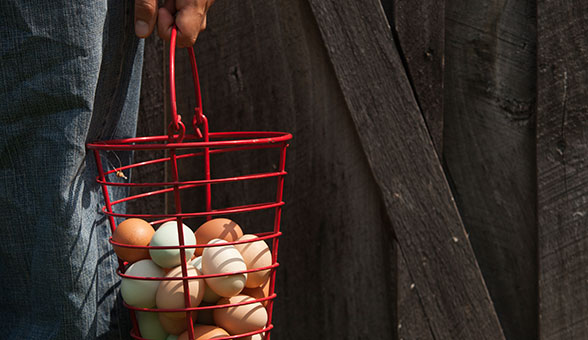
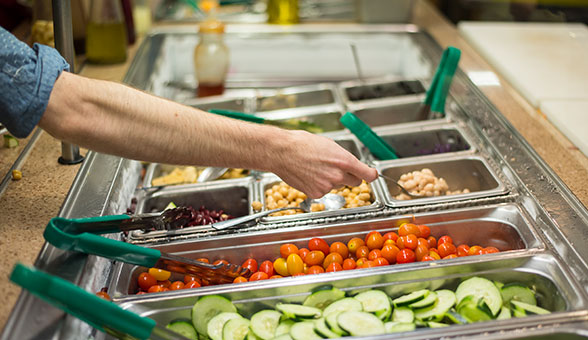
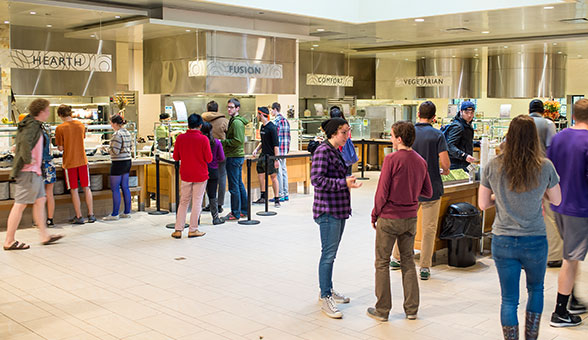
Kenyon partners with AVI Foodsystems to create a low impact, sustainable food chain from local farmers to students and back to the Kenyon campus.
Step 1
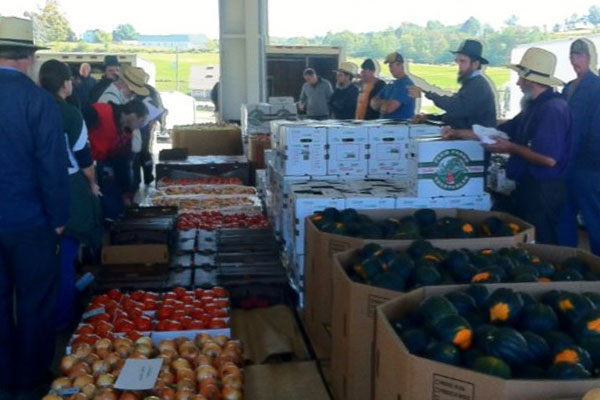
AVI director of local purchasing Dave Kraynak and his assistant Dave Swartzentruber travel out to the local countryside daily. They purchase fresh, in-season produce directly from farmers and local auctions at Owl Creek or Mt. Hope. The partnerships with the farmers from Knox County and the surrounding counties supports the local economy, grows infrastructure and brings delicious fresh local food to Peirce Hall.
Step 2
The fresh-picked produce is brought into Peirce Hall where it's moved into coolers, labeled and inventoried. The items are incorporated into the Peirce menus and pulled into the prep kitchens for the cooks to wash and process.
Step 3
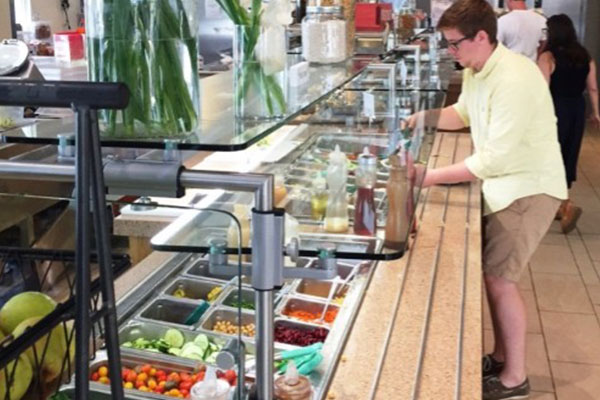
Local produce is introduced to students in the Salad Bar. They enjoy cucumbers, peppers, onions, cherry tomatoes, lettuce and assorted slaws and vegetable mixes that were growing in the fields only 48 hours ago.
Step 4
Students drop their plates directly onto the dishroom carousel. The Trayless program has reduced over 10 tons of waste annually since 2010. It also reduces daily water usage and energy from the dish machine by not washing thousands of trays everyday. The plates are scraped and all the food and paper is sent down the food trough.
Step 5
The food and paper from the dishroom flow down through the pulper to the lower level of Peirce on the dock. The pulper squeezes the water out of the mix of food and paper and shreds it into a rolling cart.
Step 6
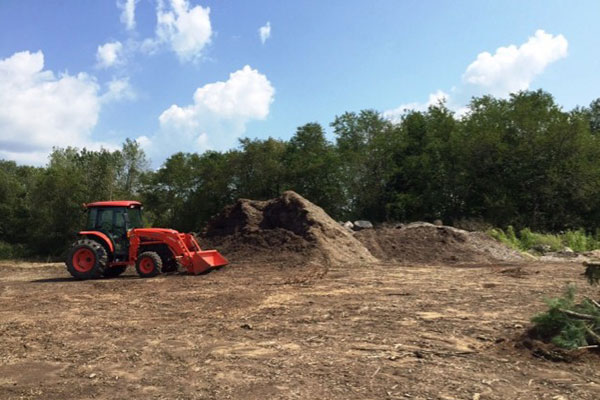
Kenyon maintenance retrieves the food waste from the pulper cart in Peirce Hall. The waste is taken to the Kenyon compost pile where the ingredients decompose into simple compounds for 6-10 months. Maintenance turns and moves the compost as needed to prepare it for its next step. The compost is transformed into nutrient-rich, microbe-loaded, dark brown compost.
Step 7

When the high quality finished compost is ready, it's spread on the Kenyon College practice fields and around the landscape on campus. The entire process is low impact, highly environmental and natural.